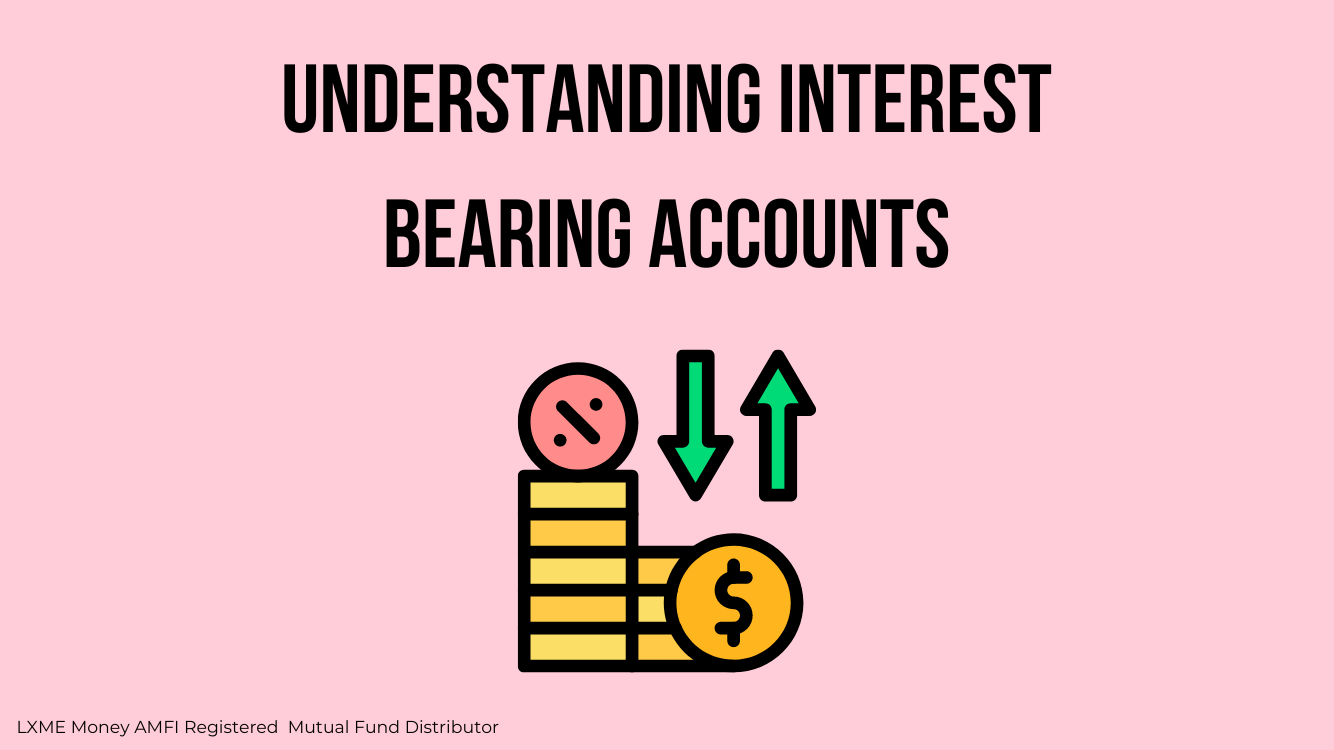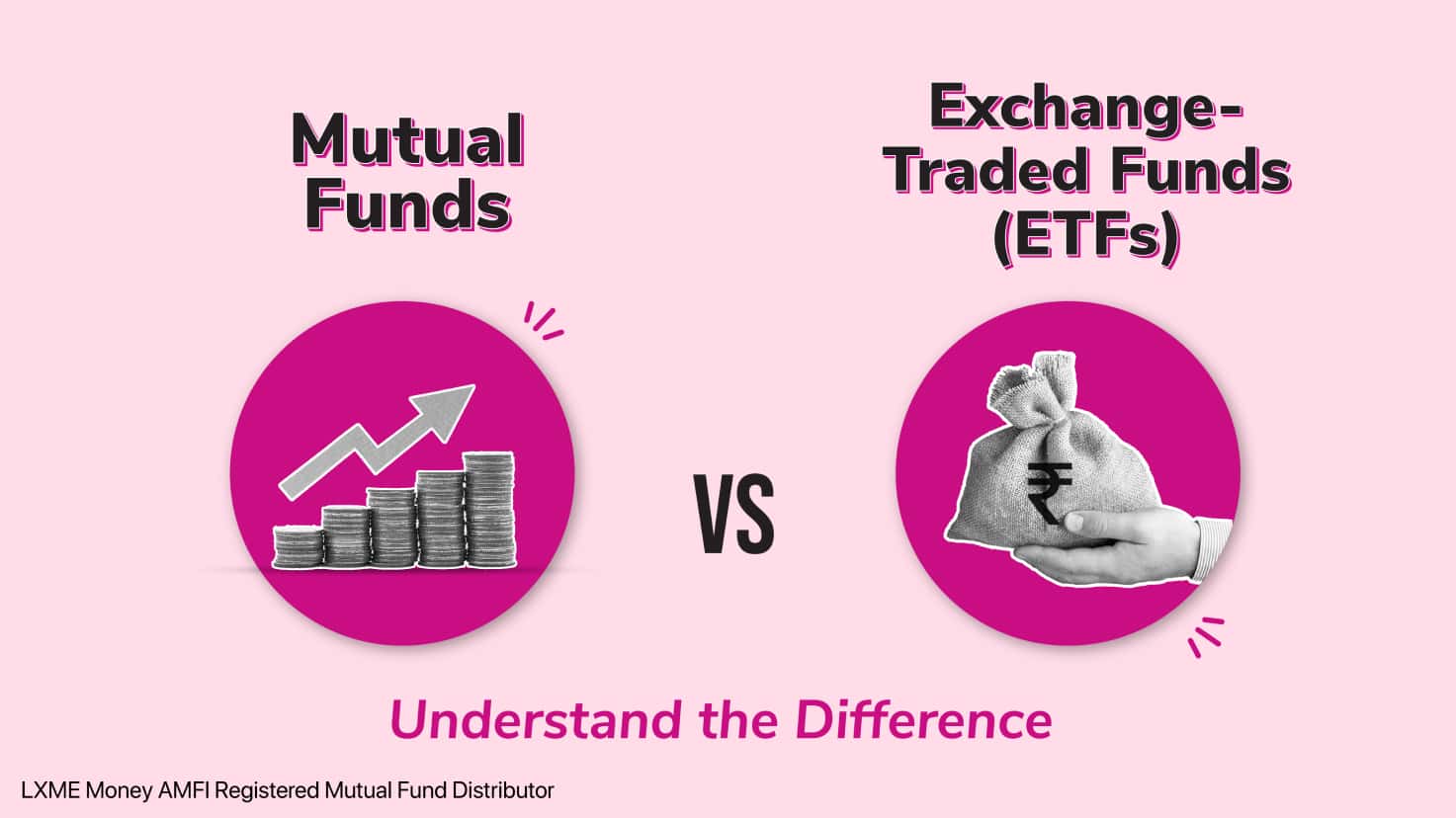In India, there are a lot of investment options available through which you can invest and grow your money. Each investment option has its own set of features, pros and cons.
One can invest in equity, debt, and gold directly, through mutual funds, or ETFs. But what’s the difference between mutual funds and ETFs?
So, let’s first understand mutual funds and ETFs individually,
What is an ETF?
– ETFs are Exchange Traded Funds that are traded on stock exchanges like any other stock.
– Exchanged Traded Funds are generally passively managed funds i.e. ETFs track a particular index and try to mirror the returns of the same index subject to tracking error (Tracking error is the difference in the actual performance of ETF and the performance of the index it is tracking)
– ETFs also offer diversification like mutual funds as various stocks are listed on that index.
– ETFs share the features of mutual funds as well as stocks such as they are similar to index funds and are listed on stock exchanges and can be traded like any other stock.
– There are charges associated with trading ETFs like the commission charged on trading ETFs as you trade through a Demat account and expense ratio (which is generally low)
– There are no specific tax benefits of ETFs it is taxed basis which ETF categories you are investing in.
Who should invest in ETFs?
– If anyone wants to invest in indices such as Nifty 50, BSE Sensex, or any other index and want to earn returns similar to indices.
– Investors who have an understanding and knowledge of the equity, debt, and gold market and can analyze the best-suited ETF for themselves.
– Investors who want to enjoy the benefit of diversification and want to be able to buy and sell whenever they want at real-time prices.
– Investors who want liquidity.
What is a Mutual Fund?
– Mutual funds are professionally managed funds wherein investors can invest their money in equity, debt, money market instruments, and any other securities as per the investment objectives of the mutual fund scheme.
– Mutual funds can be actively managed funds i.e. fund managers actively make investment decisions in order to outperform the market, or passively managed.
– Mutual funds offer diversification as they invest in various instruments basis the scheme type.
– You can invest in different asset classes like equity, debt, and gold through Mutual Funds
Who should invest in Mutual Funds?
– Don’t have much time to manage their investments, as mutual funds are managed by professional fund managers. However, in India, there are more than 2500+ mutual fund schemes available and if one doesn’t have expertise then they can check out Lxme’s expert-curated portfolios.
– Want to invest every month, as mutual funds offer two ways of investment i.e. SIP and lump sum
– Want to start small, as one can start investing in mutual funds with as low amount as ₹100.
Mutual Fund Vs. ETF
| ETFs Vs. Mutual Funds | ||
| ETFs | Mutual Funds | |
| NAV | Can be bought and sold on real-time NAV | Can be bought and sold on closing NAV |
| Fund Management | Passively managed | Actively as well as passively managed |
| Expense ratio | Low | Low to high (Depending on Mutual Fund Scheme) |
| Trading Commission | Commission is charged on trading ETFs (As you invest through Demat account) | Commission is not charged on buying and selling |
| Demat account | Required | Not required |
| Minimum Investment Required | As per the price of one unit of ETF | Rs.100 |
Before investing in any of the investment instruments, investors should assess their risk profile, financial goals, time horizon, needs and accordingly, select the best-suited investment options for them.
Want to start investing in Mutual funds? Then check out the Lxme app and click on the INVEST tab to explore expert-curated mutual fund portfolios, wherein you can start your investments with just ₹100 whether you want to invest in equity, debt, or gold.
Similar blog you may also like to read – Direct vs Regular Mutual Funds
FAQs
Are there any tax benefits of investing in Mutual Funds?
All Mutual Fund schemes are taxable except Equity Linked Savings Scheme (ELSS) which offers a tax deduction under section 80C up to the limit of Rs.1.5 Lakh.
Can one invest in gold through ETF?
Yes, one can invest in gold smartly through a Gold ETF or Gold Mutual Fund. In order to invest in Gold ETF one needs to have Demat A/c however, Demat A/c is not required if you want to invest through Gold Mutual Funds. One start investing in Gold with just Rs.100 through Lxme’s Rs.100 Gold Fund.
Share this blog with your family and friends if you find it insightful!!
Download the Lxme app for more such content!
New Investor? Request a Callback.
Fill in your details and we will guide you at every step
other blogs

Money Matters October 16, 2024
How to Open a Business Bank Account?
Starting a business is exciting, especially for women who are stepping into the world of entrepreneurship and taking control of their financial futures. One crucial step in this journey is opening a business bank account. It may seem like a small task, but opening a company bank account/current bank account for your business is very … How to Open a Business Bank Account?

Money Matters October 9, 2024
Understanding Interest-Bearing Accounts: How it Works, Benefits, and Risks
As women, we juggle a lot of responsibilities, from managing households to building our careers and planning for the future. One way we can make our hard-earned money work for us is by investing the same across different asset classes. However, traditionally, women used to save or invest their money only in interest-bearing accounts as … Understanding Interest-Bearing Accounts: How it Works, Benefits, and Risks

Money Matters August 30, 2024
The Ultimate Guide to Attracting Wealth and Manifesting Money
Have you ever wondered why some people seem to attract wealth effortlessly while others struggle? So, how to manifest money? The secret lies not just in hard work but in cultivating the right mindset and taking intentional steps toward financial abundance. This guide will walk you through the process of manifesting money by aligning your … The Ultimate Guide to Attracting Wealth and Manifesting Money









